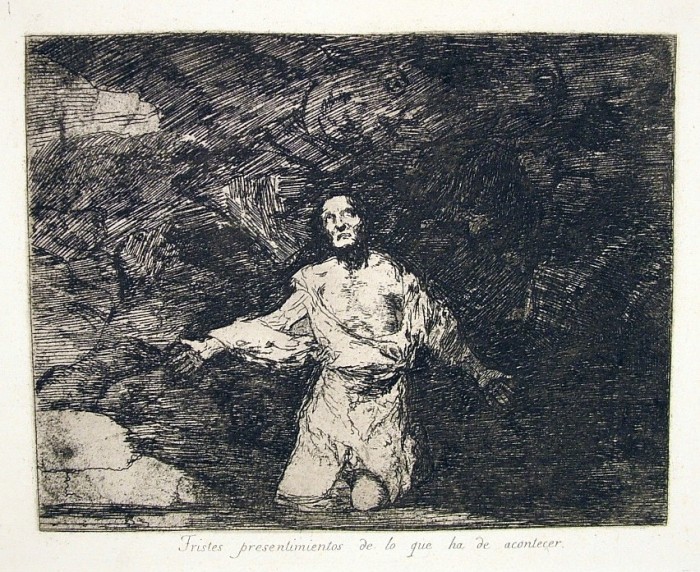Four poems from The Burning of the Books by George Szirtes
There are fourteen poems in the full set that was first published by Full Circle Press with prints by Ronald King, then, in slightly modified form, along with other poems, in the Eliot Prize short-listed The Burning of the Books and Other Poems (2009)
The poems annotate Elias Canetti's Auto da Fe, his story of the monstrous scholar, Kien; his housekeeper, the iron-skirted Teresa, who takes over his flat and kicks him out; the hunchbacked, chess-playing dwarf, Fischerle who helps Kien by carrying his invisible books around and wraps them in brown paper in a hotel room, and a collection of terrible others in proto-Fascist thirties Vienna. In that sense it is a prophetic work, a vision of human society with no consolations. Kien's library burns down at the end. The Nazis burned books. Rushdie's book was burned. Books continue to be burned.
For me it was, initially, a prompting by Ronald King who had long been fascinated by the book. Auto da Fe is not an easy or pleasing read, but it has enormous power. There are times I feel we are living a new version of the thirties. More fanaticism, a greater psychological vacuum, a more drifting kind of shallowness, a more pervasive sense of group-think. We sense more than ever that our lives are determined by factors beyond our consciousness. That is to say we are more conscious than ever of that lack.
Somewhere at the edge of the fourteen poems is a memory of Goya's Tristes presentimientos de lo que ha de acontece.

But cheer up, lad! Things aren't as bad as all that!
Nor are they. But a vision is that which presents itself, and plugging into Canetti lights up that part of one's own imagination. Besides, these tumbling improvised poems, have a funny side and do their own mad little dances. I chose these four because one has to choose some. The first poem is there, and Madhouse which is the one I read most often in public. The other two might have been replaced with two different ones.

1 comment:
Dear George,
Some Canetti's relatives fled from Bulgaria and Turkey and arrived in Brazil on mid-1920. One of them married my father's sister, so I used to joke and say that I have a Nobel-winner on my family... Talking seriously, his memoirs (three-volume in Brazilian edition) are a great panorama of Central Europe at 1900-1933 period. Best wishes, Fabio
Post a Comment